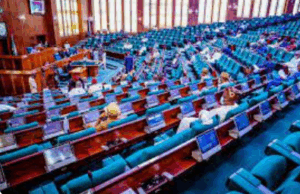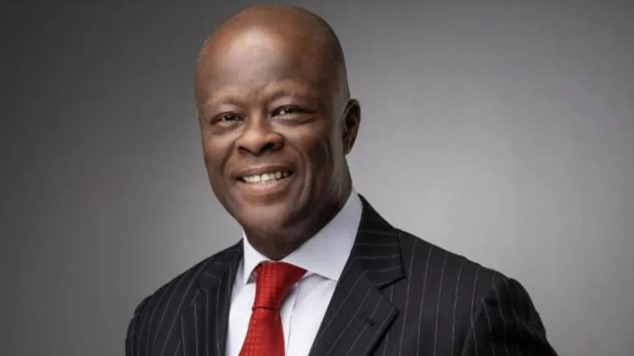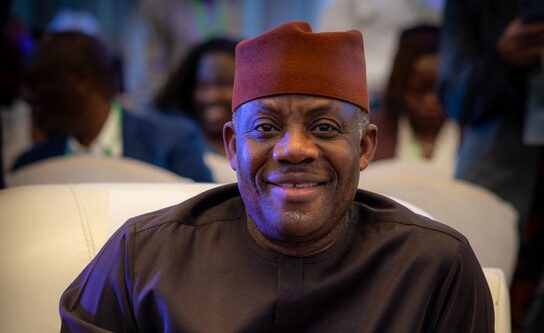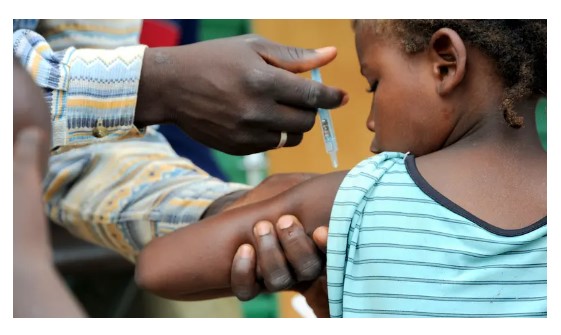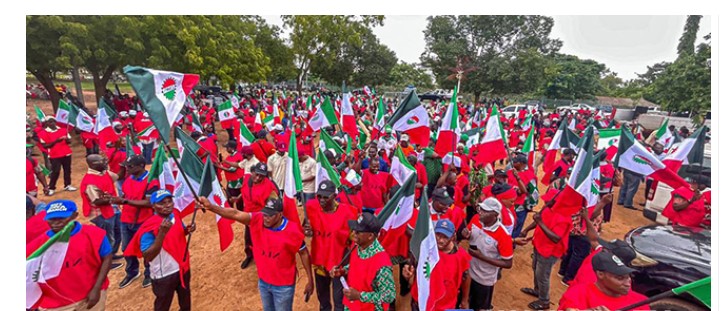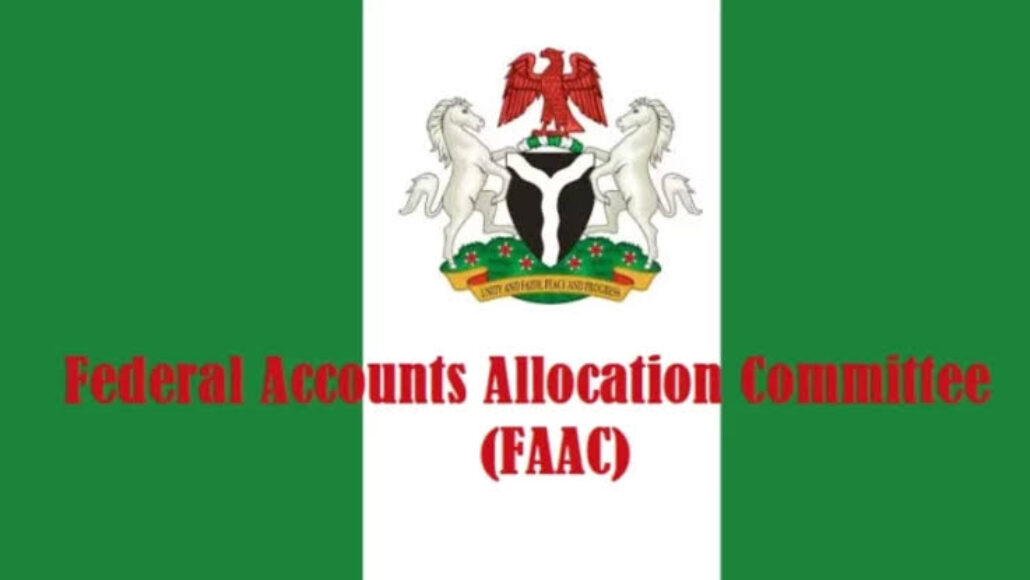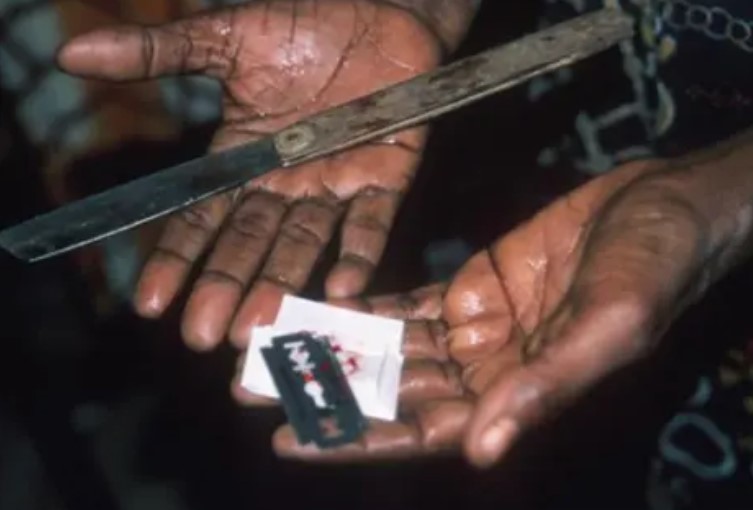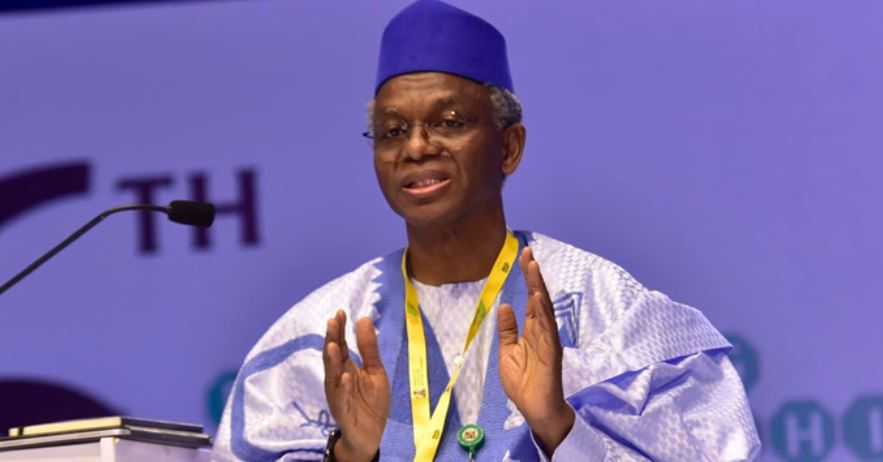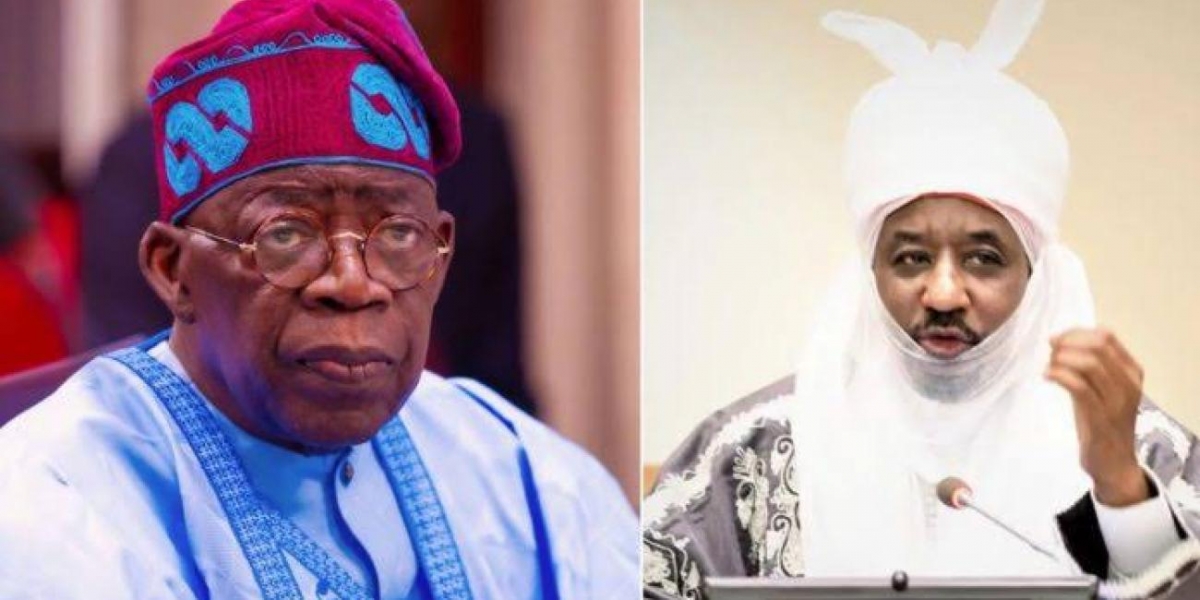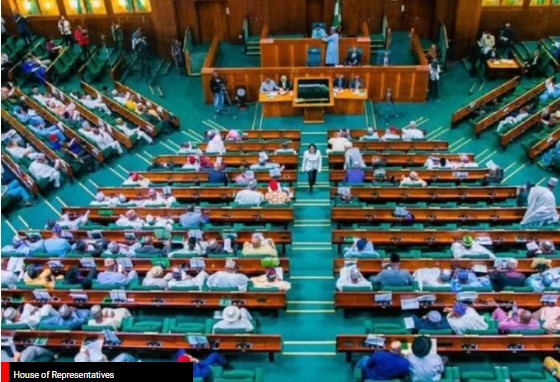Electricity Prices Set to Rise: How to Prepare for FG's Subsidy End
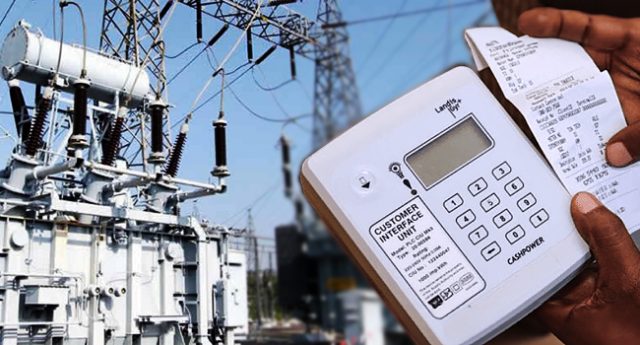
The Federal Government's intentions to increase electricity rates by more than 66%, from N116.18 to N193.63 per kilowatt-hour, have been met with opposition from power users.
Olu Verheijen, President Bola Tinubu's Special Adviser on Energy, recently revealed that the current electricity tariffs would increase by around two-thirds.
For many customers, Nigeria's electricity costs must increase by almost two-thirds to cover the cost of supplying it, according to Verheijen, who also stated that an increase should be anticipated in the next months.
Olu Verheijen, President Bola Tinubu's Special Adviser on Energy, recently revealed that the current electricity tariffs would increase by around two-thirds.
For many customers, Nigeria's electricity costs must increase by almost two-thirds to cover the cost of supplying it, according to Verheijen, who also stated that an increase should be anticipated in the next months.
Did you know? You can comment on this post! Just scroll down
Making the switch to a cost-effective yet cost-reflective tariff is one of the main issues we hope to address in the coming months, Verheijen stated.
This is necessary "so the sector generates revenue required to attract private capital, while also protecting the poor and vulnerable," she continued.
According to Verheijen, substantial investment is required in Nigeria's electricity sector in order to meet its development goals. Only 8GW of the nation's 14 gigawatts of installed power can be transferred nationwide, and only 4-5GW can be sent straight to residences and commercial buildings, she claimed.
This is necessary "so the sector generates revenue required to attract private capital, while also protecting the poor and vulnerable," she continued.
According to Verheijen, substantial investment is required in Nigeria's electricity sector in order to meet its development goals. Only 8GW of the nation's 14 gigawatts of installed power can be transferred nationwide, and only 4-5GW can be sent straight to residences and commercial buildings, she claimed.
All power users, with the exception of those who are currently on Band A, should be ready for a cost-reflective price, a senior official from the Nigerian power Regulatory Commission informed one of our correspondents.
"The subsidy is becoming a burden to the government and the failure to pay the same to the Discos is affecting liquidity," the official, who did not want to be named because he was not authorized to speak with the press, added.
"Eventually, a cost-reflective tariff will be implemented. Subsidy payments are no longer the duty of the government. It can no longer be sustained. Therefore, all clients ought to prepare for the new tariffs," the spokesman said.
Adebayo Adelabu, the Minister of Power, recently alluded to the discos' demand for a cost-reflective tariff
"The subsidy is becoming a burden to the government and the failure to pay the same to the Discos is affecting liquidity," the official, who did not want to be named because he was not authorized to speak with the press, added.
"Eventually, a cost-reflective tariff will be implemented. Subsidy payments are no longer the duty of the government. It can no longer be sustained. Therefore, all clients ought to prepare for the new tariffs," the spokesman said.
Adebayo Adelabu, the Minister of Power, recently alluded to the discos' demand for a cost-reflective tariff
Electricity distribution firms also expressed dissatisfaction over the Federal Government's failure to meet its obligation to cover the cost of subsidizing Band B to E consumers' electricity usage.
Only Band A clients pay the correct price for the electricity they use, according to Sunday Oduntan, Executive Director of Research and Advocacy for the Association of Nigerian Electricity Distributors. The government subsidizes roughly 67% of what other customers should pay.
He claimed that despite the government's pledge to cover the gaps, it had persisted in defaulting.
Only Band A clients pay the correct price for the electricity they use, according to Sunday Oduntan, Executive Director of Research and Advocacy for the Association of Nigerian Electricity Distributors. The government subsidizes roughly 67% of what other customers should pay.
He claimed that despite the government's pledge to cover the gaps, it had persisted in defaulting.
Only Band A residents now bear the full expense of electricity. The government is subsidizing your power consumption by up to 67% if you live in Band B, C, D, or E. This means that you are not even paying half of what you should be paying, and the government is not paying the so-called subsidy. The fact that it keeps piling up makes it a sort of deficiency now.
What has happened to Nigeria over the years is that the government has repeatedly demanded that power be sold for a significantly lower price than the landing cost while also saying, "Don't worry, we'll give you the shortfall," or subsidy. However, the issue is that it has never been done," Oduntan said.
According to our correspondent, the Nigerian Electricity Regulatory Commission recently released a report stating that the average permitted tariff for those who are still receiving government subsidies is N116.18 per kilowatt-hour.
It is determined that N77.45 is two-thirds of N116.18. Accordingly, a consumer should budget roughly N193.63 for each kilowatt-hour of energy used.
The cost is almost N16 less than the N209 that Band A customers, who are required to have at least 20 hours of electricity per day, must pay.
What has happened to Nigeria over the years is that the government has repeatedly demanded that power be sold for a significantly lower price than the landing cost while also saying, "Don't worry, we'll give you the shortfall," or subsidy. However, the issue is that it has never been done," Oduntan said.
According to our correspondent, the Nigerian Electricity Regulatory Commission recently released a report stating that the average permitted tariff for those who are still receiving government subsidies is N116.18 per kilowatt-hour.
It is determined that N77.45 is two-thirds of N116.18. Accordingly, a consumer should budget roughly N193.63 for each kilowatt-hour of energy used.
The cost is almost N16 less than the N209 that Band A customers, who are required to have at least 20 hours of electricity per day, must pay.
Since clients in Bands B through E only receive electricity when the discos want it to be available, the power distribution companies do not give them any priority.
In 2020, the NERC implemented a Service-Based Tariff, as our correspondent remembers.
In order to improve service delivery to end-user customers and guarantee that the energy tariffs paid by end-user customers accurately represent the services provided by the distribution firms based on the number of hours of electricity supplied each day, the Service-Based Tariff plan was introduced.
Customers are categorized into Bands A through E under the SBT.
In 2020, the NERC implemented a Service-Based Tariff, as our correspondent remembers.
In order to improve service delivery to end-user customers and guarantee that the energy tariffs paid by end-user customers accurately represent the services provided by the distribution firms based on the number of hours of electricity supplied each day, the Service-Based Tariff plan was introduced.
Customers are categorized into Bands A through E under the SBT.
Customers in Band A receive at least 20 hours of electricity; those in Band B receive at least 16 hours; those in Band C receive 12 hours; those in Band D receive 8 hours; and those in Band E receive 4 hours.
Many Nigerians in Bands B through E, however, have voiced their displeasure at power outages that, in some cases, linger for days, months, or even years.
Since the cost-reflective pricing was introduced in Band A feeder areas in April 2024, the discos have given priority to these customers with reliable power supply, at the expense of other customers who now have to put up with long periods of darkness.
Many Nigerians in Bands B through E, however, have voiced their displeasure at power outages that, in some cases, linger for days, months, or even years.
Since the cost-reflective pricing was introduced in Band A feeder areas in April 2024, the discos have given priority to these customers with reliable power supply, at the expense of other customers who now have to put up with long periods of darkness.
Although it was not immediately clear if the government intended to strictly enforce Service-Based Tariff hours of supply for all bands with the proposed tariff increase, the constantly occurring grid failures and the available power generation, which is less than 5,000 megawatts, have demonstrated that there is not enough power generation to meet consumer demands.
Customers on the estimated billing system are worried that they would be charged more for services they didn't use.
Customers kick
Adeola Samuel-Ilori, Coordinator of the Electricity Consumers Protection Forum, questioned why the government would consider raising tariffs without metering consumers.
Samuel-Ilori claims that from January 2024, the proposal to raise tariffs has been in existence.
Customers on the estimated billing system are worried that they would be charged more for services they didn't use.
Customers kick
Adeola Samuel-Ilori, Coordinator of the Electricity Consumers Protection Forum, questioned why the government would consider raising tariffs without metering consumers.
Samuel-Ilori claims that from January 2024, the proposal to raise tariffs has been in existence.
According to him, the Band A tariff rise was singled out for a further increase in April 2024, despite the fact that the major tariff increase was agreed to take effect in January 2025. The forum went to court to contest the Band A tariff increase.
As important players in the power industry, some of us are neither surprised or shocked if they decide to impose the tariff hike at this time. We are arguing that in addition to implementing the tariff adjustment as required by law, they should also implement Section 13 of the Consumer Protection Regulations 2023 and Section 114 of the Electricity Act, which requires Discos to provide meters to customers at no cost to them.
As important players in the power industry, some of us are neither surprised or shocked if they decide to impose the tariff hike at this time. We are arguing that in addition to implementing the tariff adjustment as required by law, they should also implement Section 13 of the Consumer Protection Regulations 2023 and Section 114 of the Electricity Act, which requires Discos to provide meters to customers at no cost to them.
In the event that the meter is unavailable, he emphasized, "the capping method that NERC releases to Discos each month as the only unit an unmetered customer should be billed must be implemented."
Samuel-Ilori criticized the discos for not metering their patrons even if they were charged for it.
Since 2019, every time a customer has purchased an electricity tariff, a meter acquisition fund has been created using our unit pricing. In addition to the legal requirements to supply meters for consumers, that one should act as a buffer to allow customers to obtain meters at will.
Samuel-Ilori criticized the discos for not metering their patrons even if they were charged for it.
Since 2019, every time a customer has purchased an electricity tariff, a meter acquisition fund has been created using our unit pricing. In addition to the legal requirements to supply meters for consumers, that one should act as a buffer to allow customers to obtain meters at will.
For Nigerian customers, this presents a double peril situation. They took it out of our tariff template and continue to insist that customers purchase the identical meter from the authorized map providers. Therefore, he said, "the consumers' right to have what is stipulated in law operations should not be denied to them if they are raising tariffs on every Atakumosa market day."
He emphasized that the government did not purchase the meters it distributes; rather, the money collected from the electricity supply charge was used to purchase the meters.
According to Samuel-Ilori, the consumer protection group intends to obtain a court order compelling the DisCos to meter their customers within a specific time frame.
In order to enforce Section 114 of the Electricity Act, 2023 as amended, which states among other things that the NERC must give discos time to make meters available to consumers or risk having their licenses withdrawn, we are seeking an order of mandamus against the NERC.
Additionally, he stated, "the discos shall be responsible for providing meters and meter accessories to customers free of charge in accordance with Section 13 of the Consumers Protection Regulations 2023."
Princewill Okorie, the Executive Director of the Consumer Protection Advocacy Center, spoke out against the pricing hike plan, calling it an attempt to further deprive Nigerians who are already struggling financially.
Okorie asked what consumer protection measures the Federal Competition and Consumer Protection Commission is taking.
He emphasized that the government did not purchase the meters it distributes; rather, the money collected from the electricity supply charge was used to purchase the meters.
According to Samuel-Ilori, the consumer protection group intends to obtain a court order compelling the DisCos to meter their customers within a specific time frame.
In order to enforce Section 114 of the Electricity Act, 2023 as amended, which states among other things that the NERC must give discos time to make meters available to consumers or risk having their licenses withdrawn, we are seeking an order of mandamus against the NERC.
Additionally, he stated, "the discos shall be responsible for providing meters and meter accessories to customers free of charge in accordance with Section 13 of the Consumers Protection Regulations 2023."
Princewill Okorie, the Executive Director of the Consumer Protection Advocacy Center, spoke out against the pricing hike plan, calling it an attempt to further deprive Nigerians who are already struggling financially.
Okorie asked what consumer protection measures the Federal Competition and Consumer Protection Commission is taking.
He claims that the federal government is forcing people to pay extra for services that they haven't received.
"Why are consumers having a hard time with the Federal Government? What steps is the Consumer Protection Commission taking to prevent exploitation of Nigerians? Even though everything is difficult, customers are forced to pay more for unavailable electricity. They aim to expand it to other customers after starting with Band A. Many people are no longer able to pay for energy; companies are closing, but government supporters claim we are headed in the right direction.
"Why are consumers having a hard time with the Federal Government? What steps is the Consumer Protection Commission taking to prevent exploitation of Nigerians? Even though everything is difficult, customers are forced to pay more for unavailable electricity. They aim to expand it to other customers after starting with Band A. Many people are no longer able to pay for energy; companies are closing, but government supporters claim we are headed in the right direction.
Given that many customers are not metered, this increase is unwarranted. Meters are paid for by consumers; DisCos do not contribute to the industry; they merely profit from it. For the customers who are still having financial difficulties, this will be unjust. Before considering raising tariffs, the administration is aware of what has to be done. "The FCCPC ought to make an effort to safeguard consumers," he stated.
In response, Bolaji Tunji, the Special Advisor to the Minister of Power on Media Relations, recognized that the anticipated rise is unavoidable but was hesitant to disclose it outright.
In response, Bolaji Tunji, the Special Advisor to the Minister of Power on Media Relations, recognized that the anticipated rise is unavoidable but was hesitant to disclose it outright.
Cost-reflectiveness is undoubtedly preferable, but at this time, the government has no plans to raise tariffs. Future occurrences cannot be ruled out. Our current priorities are to fortify the grid and progressively move individuals to Band A.
Nonetheless, Tayo Adegbenle, the creator of PowerUp Nigeria, believed that the rate hike would support the expansion of the industry.
According to Adegbenle, Nigeria has been compromising prospective investments in the power sector and service quality in the name of subsidies.
"We need new strategies and ideas to draw in investment and set tariffs since our current subsidy system is unsustainable. Thankfully, as you can see, the Federal Government is implementing my suggestions," he said.
Nonetheless, Tayo Adegbenle, the creator of PowerUp Nigeria, believed that the rate hike would support the expansion of the industry.
According to Adegbenle, Nigeria has been compromising prospective investments in the power sector and service quality in the name of subsidies.
"We need new strategies and ideas to draw in investment and set tariffs since our current subsidy system is unsustainable. Thankfully, as you can see, the Federal Government is implementing my suggestions," he said.
Nigeria, which has a population of more than 200 million, is still having trouble using 4,500 megawatts of energy, according to the PUNCH.
In 2024, attempts to increase power to 6,000MW failed because of persistent grid failures and vandalism.
Currently, more than 250 businesses and organizations have switched to producing their own electricity instead of using the national grid.
Similarly, despite government efforts and pledges to address the metering gap, approximately seven million customers are not metered.
In 2024, attempts to increase power to 6,000MW failed because of persistent grid failures and vandalism.
Currently, more than 250 businesses and organizations have switched to producing their own electricity instead of using the national grid.
Similarly, despite government efforts and pledges to address the metering gap, approximately seven million customers are not metered.
Article Posted 4 Months ago. You can post your own articles and it will be published for free.
No Registration is required! But we review before publishing! Click here to get started
One Favour Please! Subscribe To Our YouTube Channel!
468k
Cook Amazing Nigerian Dishes, Follow Adorable Kitchen YouTube Channel!
1.1m
Like us on Facebook, Follow on Twitter
React and Comment
Click Here To Hide More Posts Like This
Watch and Download Free Mobile Movies, Read entertainment news and reports, Download music and Upload your own For FREE.
Submit Your Content to be published for you FREE! We thrive on user-submitted content!
But we moderate!




